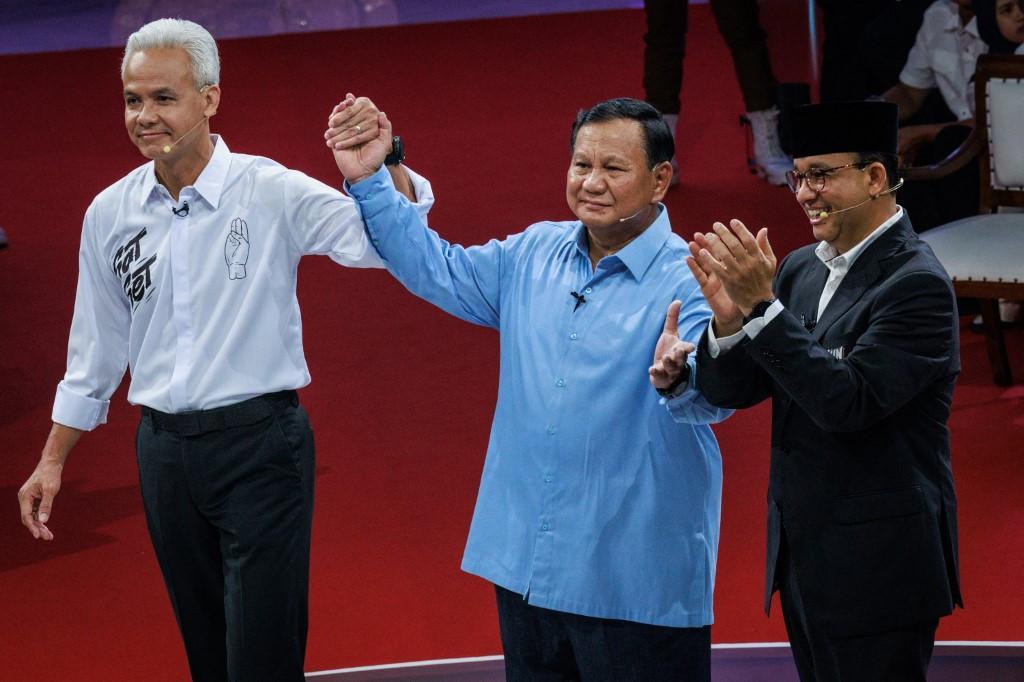Australia/Israel Review
Asia Watch: Personality and popularity over policy
Jan 25, 2024 | Michael Shannon

The world’s most extensive single-day election will take place on February 14, when up to 204.8 million Indonesian voters will choose both the president and vice president, and select almost 20,000 representatives of national, provincial, and district parliaments from a pool of a quarter-million candidates.
But this presidential election is more about personality than policy. Towering over proceedings is a man who is not a candidate – President Joko Widodo, who after nearly ten years in office retains polling numbers in the low 70s. Elected as an outsider, his delivery of reforms may not have met expectations but he has eschewed divisive rhetoric and retained his common touch.
Such is Jokowi’s stature that the two leading candidates – front-running Defence Minister Prabowo Subianto and former Central Java Governor Ganjar Pranowo – have spent the better part of two years pledging to largely continue Jokowi’s policies in hopes of gaining some sort of endorsement from him.
In October, Prabowo made a highly strategic move in appointing Gibran Rakabuming Raka, Jokowi’s 36-year-old son, as his vice-presidential running-mate to capitalise upon Jokowi’s sky-high poll ratings. Echoing the time-honoured practices of the country’s elite political families, Jokowi is creating his own political dynasty by giving support to Prabowo, whom he defeated in the previous two presidential elections.
In doing so, Jokowi appears to have forsaken his PDI-P stablemate and former front-runner Ganjar, who has been diminished by the perception that he is beholden to the meddling PDI-P chairwoman Megawati Sukarnoputri, who in turn appears unable to accept that Jokowi’s political success has far surpassed hers.
The only candidate to adopt a more critical view of Jokowi is former Jakarta Governor Anies Beswedan, a technocrat who has courted the conservative religious vote. This has served him well previously, but at a national level this stance has seen him consistently placed a distant third in public polling.
Aside from the focus upon personalities and alliances, debates have largely centred upon domestic issues. Foreign policy has not featured strongly as all the candidates are in broad agreement that Indonesia should maintain an independent path between major powers China and the United States.
Differences between them relate more to emphasis over issues such as defence spending, resolving tensions in the South China Sea and transforming the Southeast Asian giant into a global power. But these are not issues that drive people to march on the streets. The one issue that reliably does is Israel-Palestine.
Hundreds of “Free Palestine” protesters gathered in front of the US Embassy in central Jakarta on Jan. 13 to mark the 100th day of “Israel’s ongoing aggression in Gaza.” Chanting “Free Palestine”, they demanded that Israel cease its military operation.
People’s Consultative Assembly (MPR) Deputy Speaker Hidayat Nur Wahid, former leader of the Islamist-oriented Prosperous Justice Party (PKS), urged Indonesians to “keep standing with other nations across the world to show their firm rejection of Israel’s acts of crime against humanity to the People of Gaza and Palestine as a whole.” He further lauded the Indonesian Government for its ongoing support for the Palestinians.
State news agency ANTARA reported earlier that Vice President Ma’ruf Amin, an elderly conservative cleric, asserted that Israel’s military campaign in the Gaza Strip is not an act of self-defence but a genocidal campaign against Palestinians. “The world regards what Israel has been doing has gone beyond an act of self-defence. Instead, it has been a genocide,” he stated.
No candidate has expressed views at odds with the prevailing sentiment of pro-Palestinian solidarity.
With a foreign policy platform of “values-led diplomacy”, Anies told a candidates forum that an Indonesian president should work “to eradicate colonialism on the planet, which is of utmost importance. [A president] should not only give statements in ceremonies. The president and all diplomats should work hard towards that goal, particularly for Palestine.”
At the same forum, Ganjar affirmed Indonesia’s consistent support for “decolonisation” efforts. “This is our commitment to Palestine,” he stated. On the Israel-Hamas conflict, he has expressed pessimism that the United Nations can solve the issue and has encouraged Indonesia to support other nations’ initiatives and lobby its international partners to prioritise humanitarian aid.
Prabowo has publicised his involvement in government missions to support the Palestinians, from deploying military aircraft for delivery of humanitarian aid to offering the dispatch of a hospital ship to Gaza.
“From the earliest day, all Indonesian [presidents] support the struggle of the Palestinian people to have their own state, to have their independence,” Prabowo told a foreign policy dialogue hosted by CSIS Indonesia, a think tank. “We have been colonised. We understand [how it is to be] colonised. I will continue this [support] because that is the policy… demanded and required by our people.”
Tags: Indonesia, Israel, Palestinians






